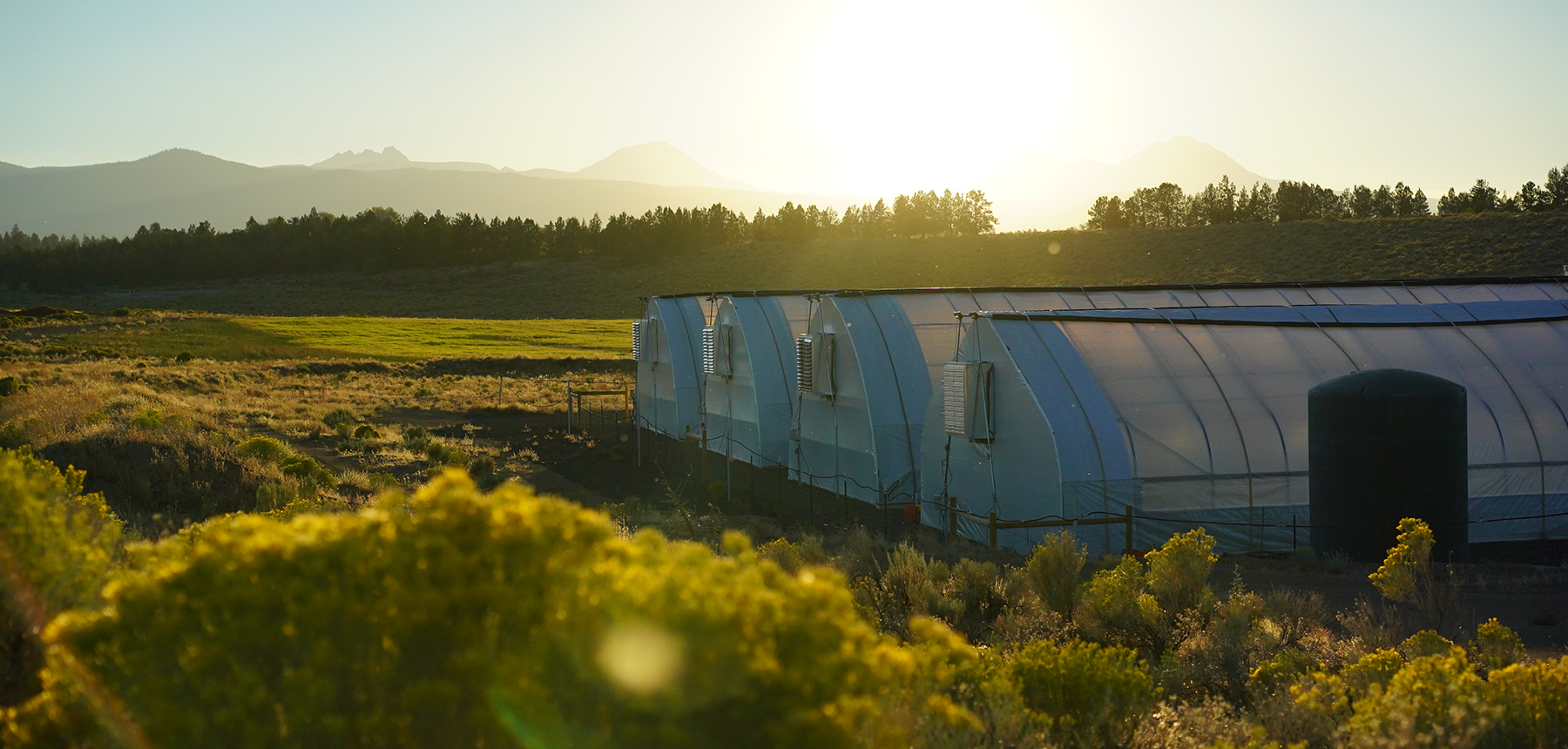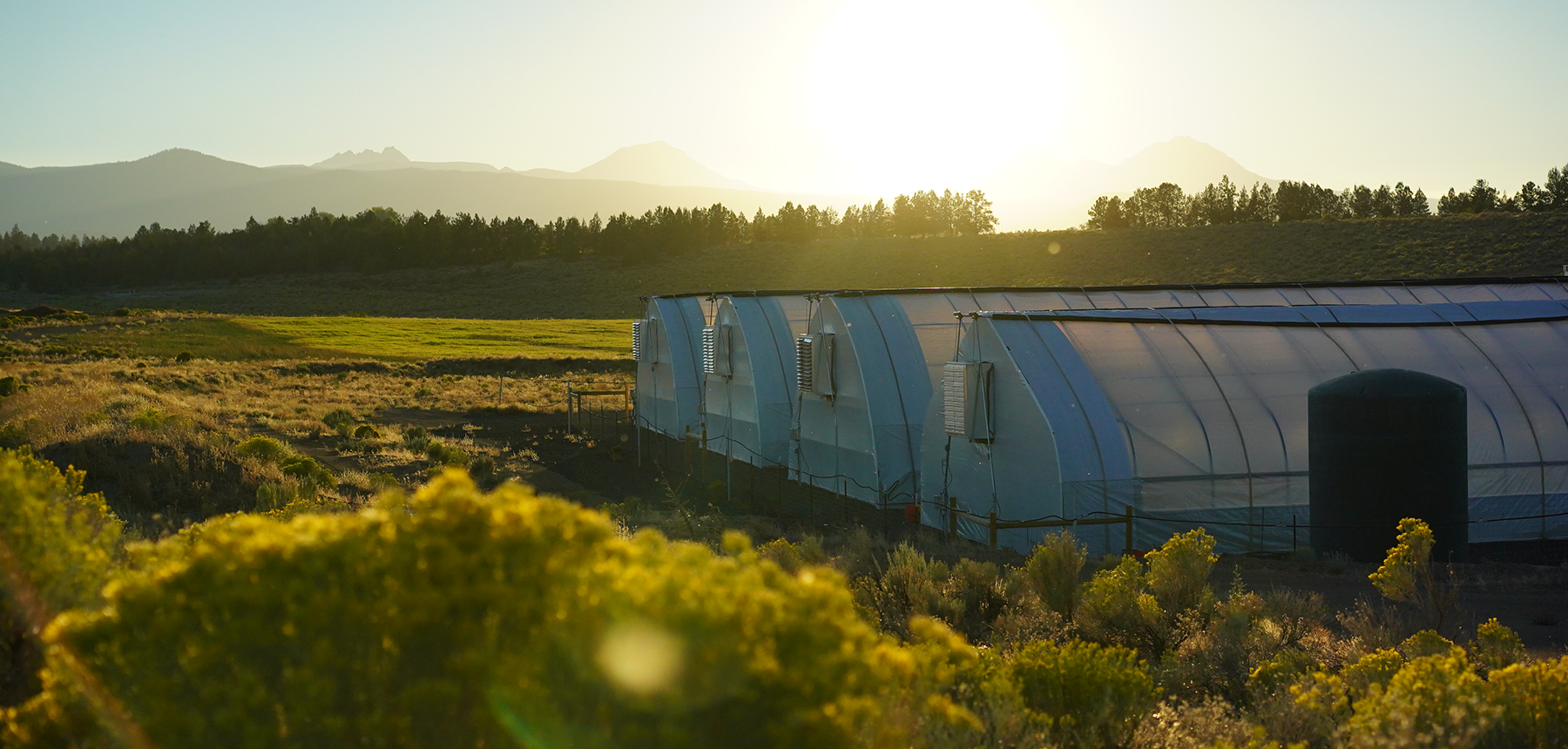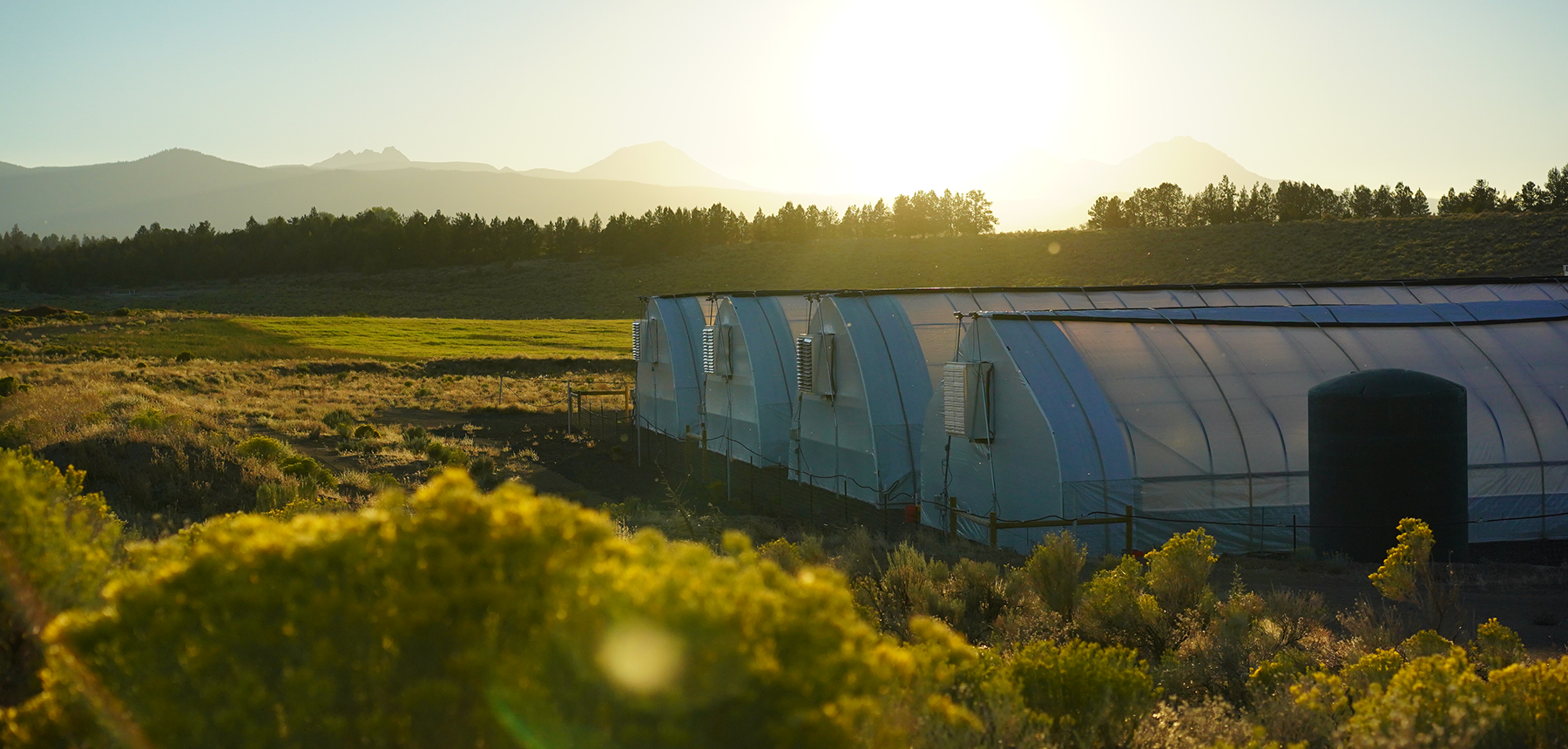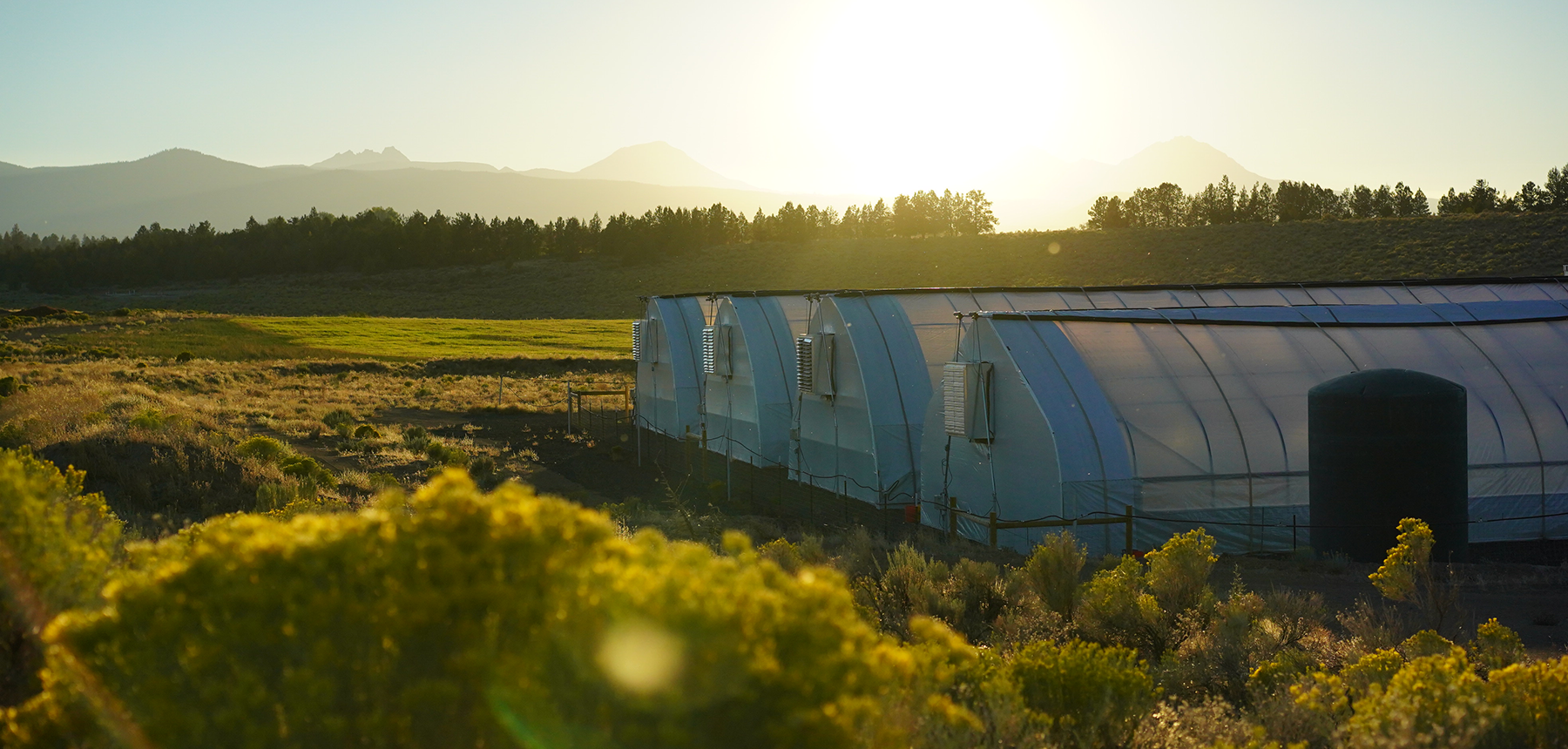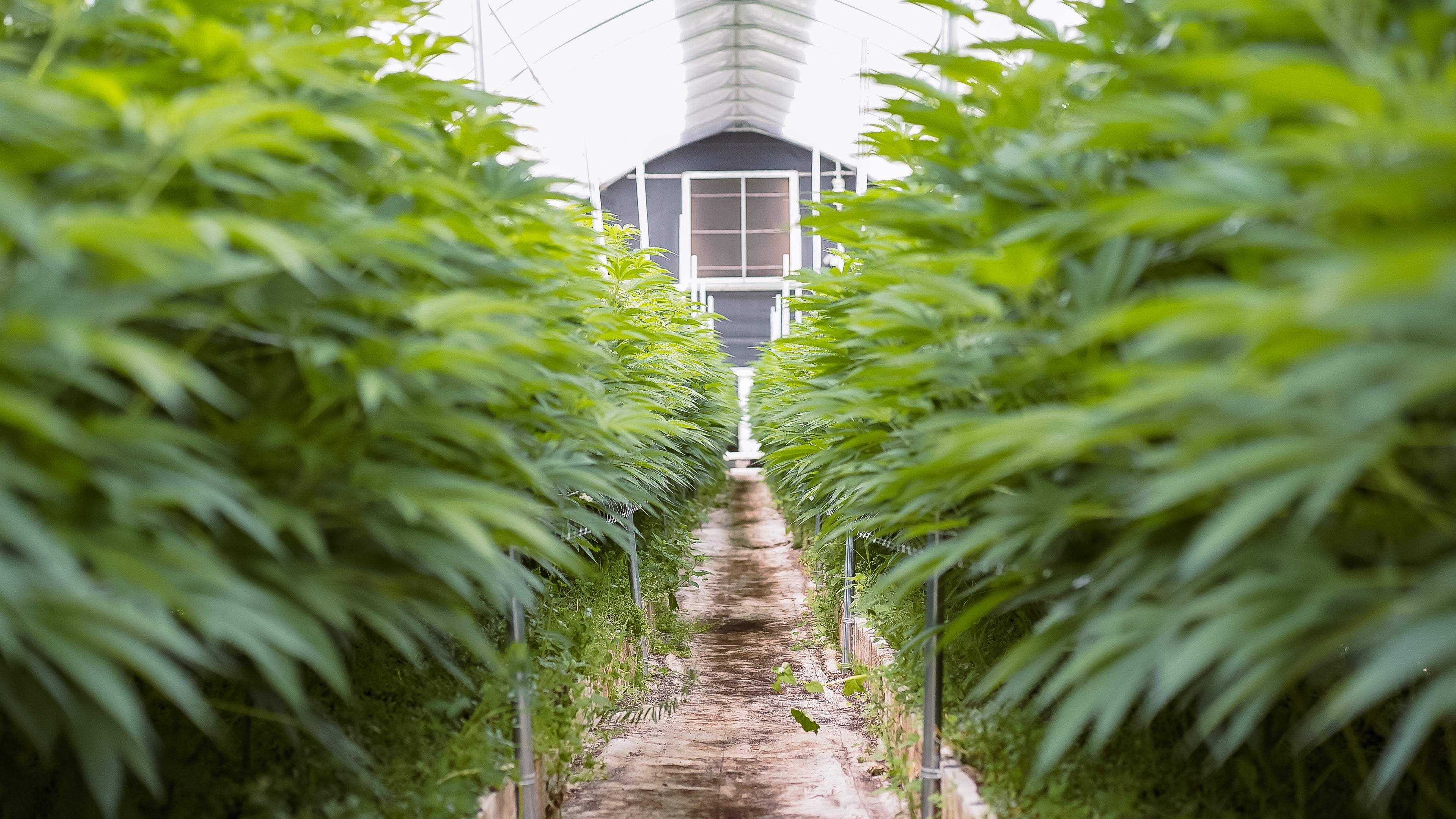Bend THE OREGROWN FARM Oregon
Nestled in the lush foothills of the Cascades in Tumalo, Oregon, our farm boasts a rich history, having evolved from a pumice mine to a goat cheese farm. Now, it thrives under the powerful Central Oregon sun, with cool evenings and crisp, clean air providing an ideal environment for cultivation. Our water comes from a pristine, snow-melt-filled aquifer, ensuring the purity and vitality of everything we grow.
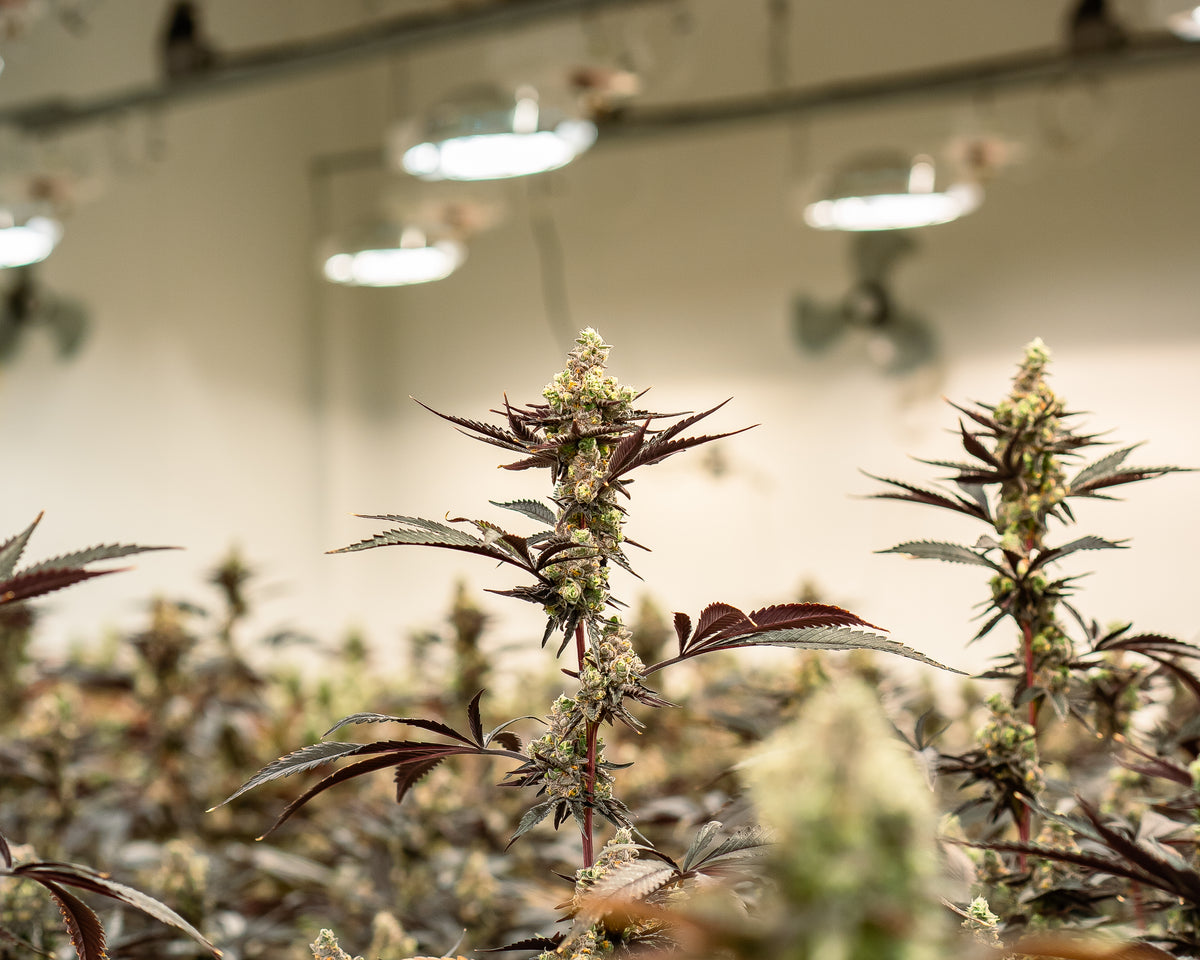
Indoor Facility
At our farm, regenerative agriculture is at the heart of everything we do. For over a year, we've been reusing the same soil, enriching it with compost teas and natural amendments rather than relying on synthetic feeds. This approach not only sustains the soil's fertility but also enhances its microbial life, fostering a healthy ecosystem.
We prioritize the careful treatment of our plants, handling flower minimally to preserve their integrity and potency. Instead of using chemical sprays, we rely on beneficial bugs to manage pests, maintaining a balanced and thriving environment. Our commitment to soil microbiology and ecosystem health ensures that our cultivation practices are sustainable and harmonious with nature. Through these methods, we're able to produce the highest-quality products.
We prioritize the careful treatment of our plants, handling flower minimally to preserve their integrity and potency. Instead of using chemical sprays, we rely on beneficial bugs to manage pests, maintaining a balanced and thriving environment. Our commitment to soil microbiology and ecosystem health ensures that our cultivation practices are sustainable and harmonious with nature. Through these methods, we're able to produce the highest-quality products.

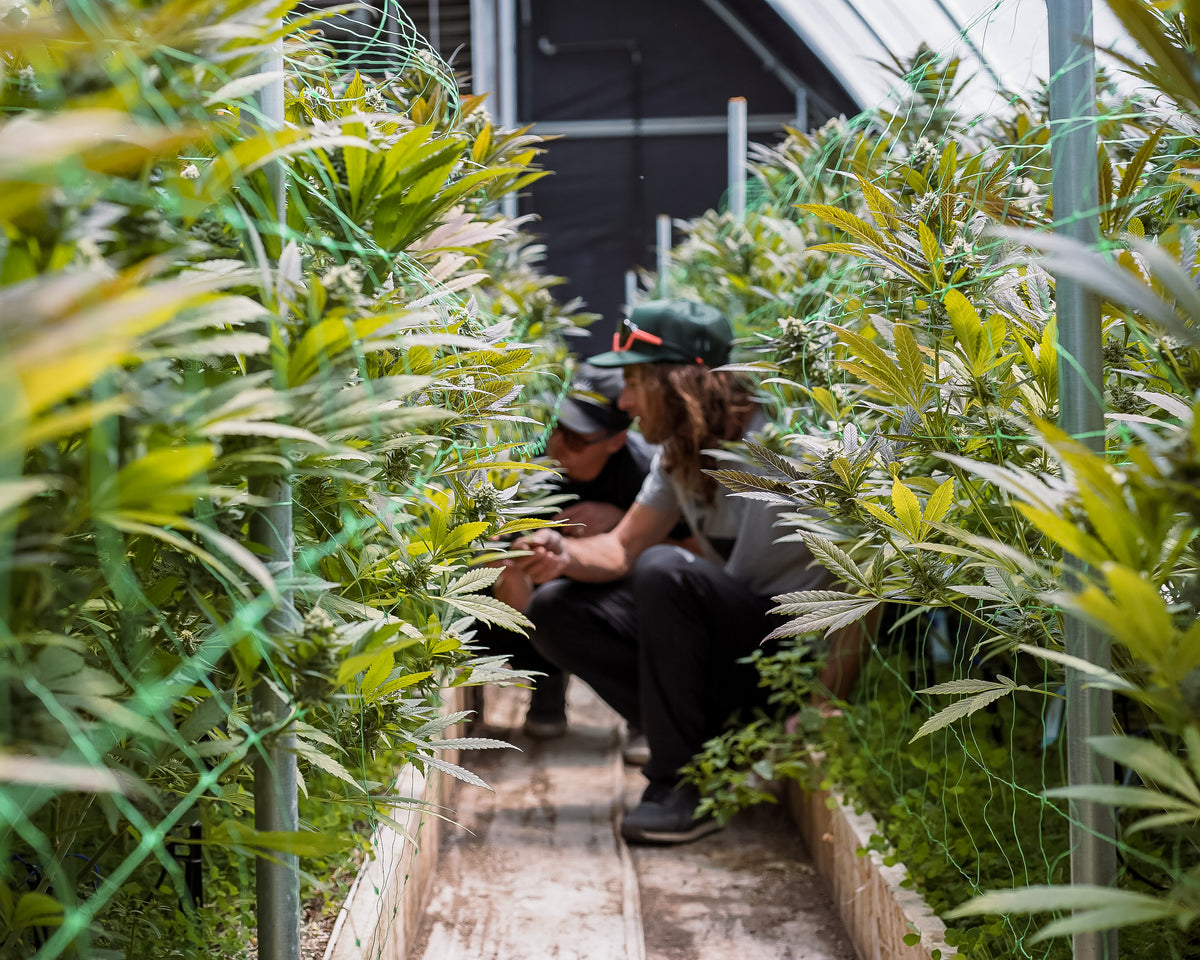
Outdoor Living Soil Greenhouses
In our eight outdoor greenhouses, we embrace sustainable practices to create a thriving, balanced ecosystem. We use cover crops for nitrogen fixing, which enriches the soil naturally and promotes robust plant growth. Beneficial insects flourish in this healthy environment, providing natural pest control without the need for harmful chemicals.
To attract and support these helpful insects, we plant a variety of flowers that offer both habitat and nourishment. Our worm bin produces vermicompost, further enriching the soil and serving as a breeding ground for beneficial bugs. We can even harvest rove beetles and Stratiolaelaps mites from the bin to support our indoor cultivation efforts. Through these practices, we ensure our greenhouses remain productive, sustainable, and in harmony with nature.
To attract and support these helpful insects, we plant a variety of flowers that offer both habitat and nourishment. Our worm bin produces vermicompost, further enriching the soil and serving as a breeding ground for beneficial bugs. We can even harvest rove beetles and Stratiolaelaps mites from the bin to support our indoor cultivation efforts. Through these practices, we ensure our greenhouses remain productive, sustainable, and in harmony with nature.
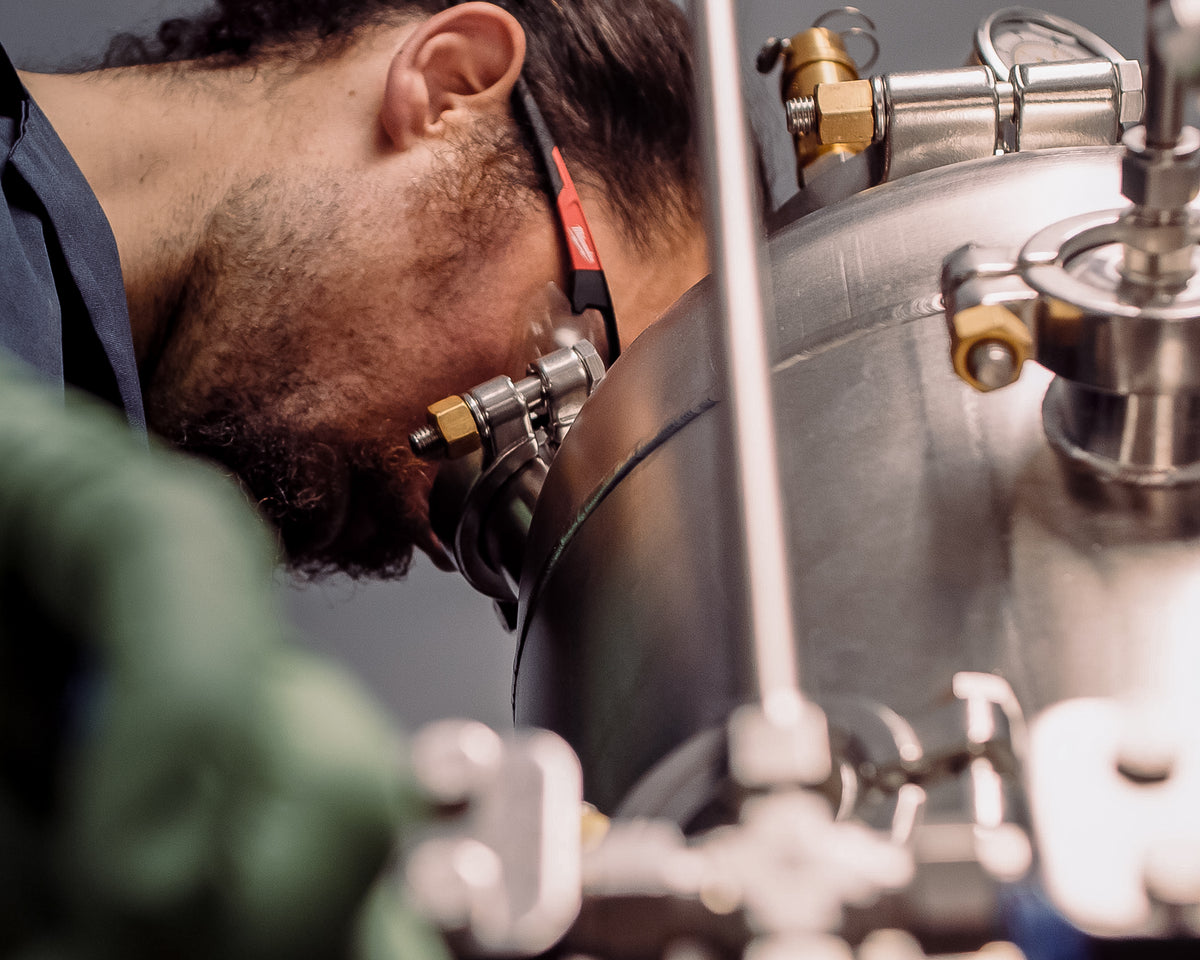
Extraction Lab
Our on-site extraction lab is where we craft all your favorite Oregrown Dab and Vape products. Just up the road from our cultivation facilities, our location allows us to harvest and begin extraction right on schedule. This proximity helps us maintain top quality while minimizing the typical risks associated with transport. Our state-of-the-art facility is fully equipped to focus on full-spectrum extractions, delivering the premium products you love.

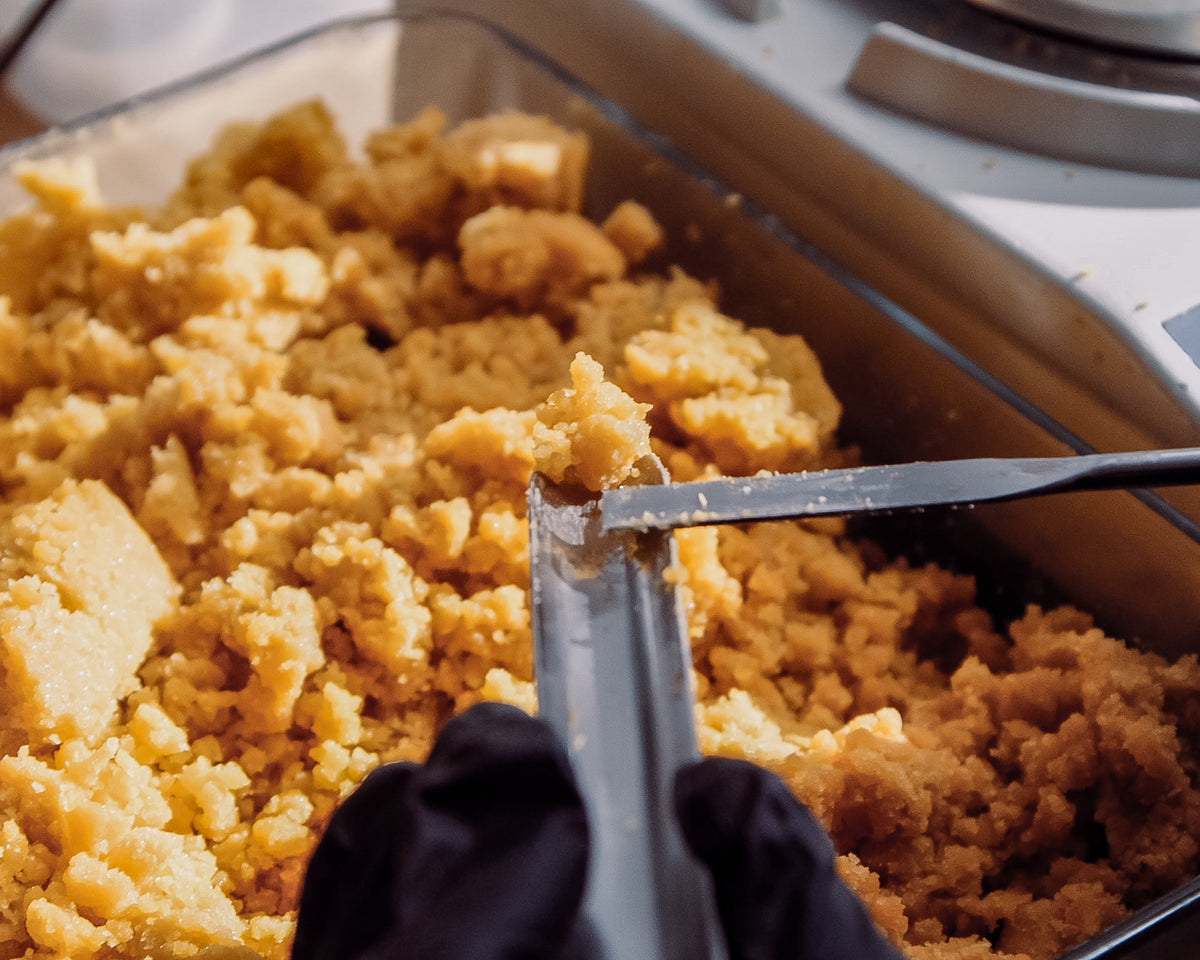
Production Room
Once our products are completed in our extraction lab, they come down to our production room. We fill all vape products, measure dabs by the gram, roll each joint, and pack everything with care. Our team takes pride in quality control, inspecting every unit as it’s hand-packed and labeled. This personal attention ensures that you receive only the highest quality products from our retail partners.
Our Growing Practices
Our growing practices are rooted in sustainability and environmental responsibility, creating a complete ecosystem that closely mirrors nature. By nurturing the plants in a way that aligns with their evolutionary design, we ensure that each bud develops to its fullest potential. Our methods prioritize harmony with the environment, fostering a balanced and thriving ecosystem that produces high-quality, naturally-grown cannabis.
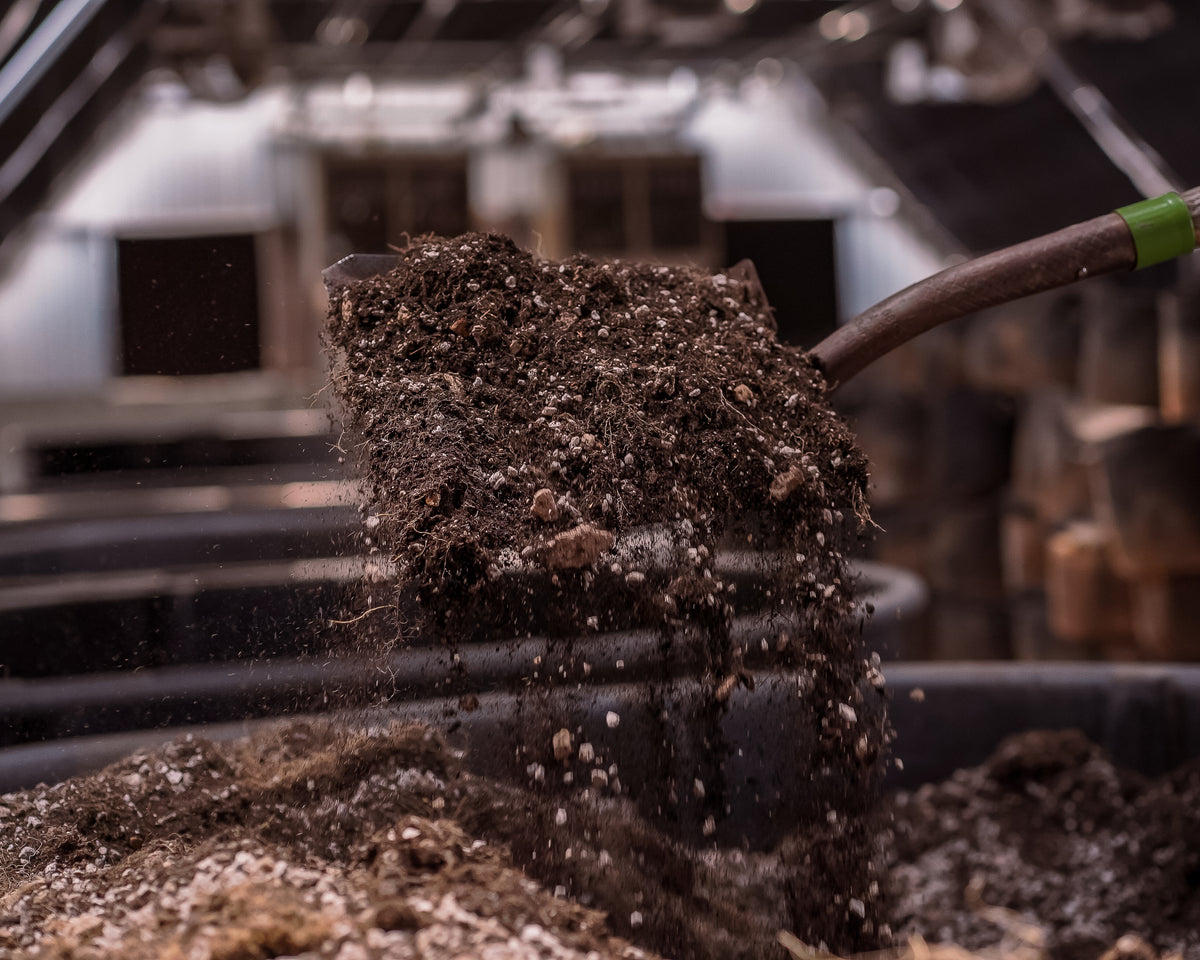
Regenerative Agriculture
Through regenerative agriculture, we cultivate healthy cannabis plants with high-quality yields. We reuse soil and use Soil Armor—cover crops in greenhouses shield against elements, retain moisture, and conserve water. Minimal soil disturbance like no-till farming fosters beneficial microbiology, enriching soil over time. Our ecosystem approach includes diverse microbes, insects, plants, and animals, enhancing soil fertility. Keeping roots in soil captures carbon, supports microorganisms, enriching soil sustainably.

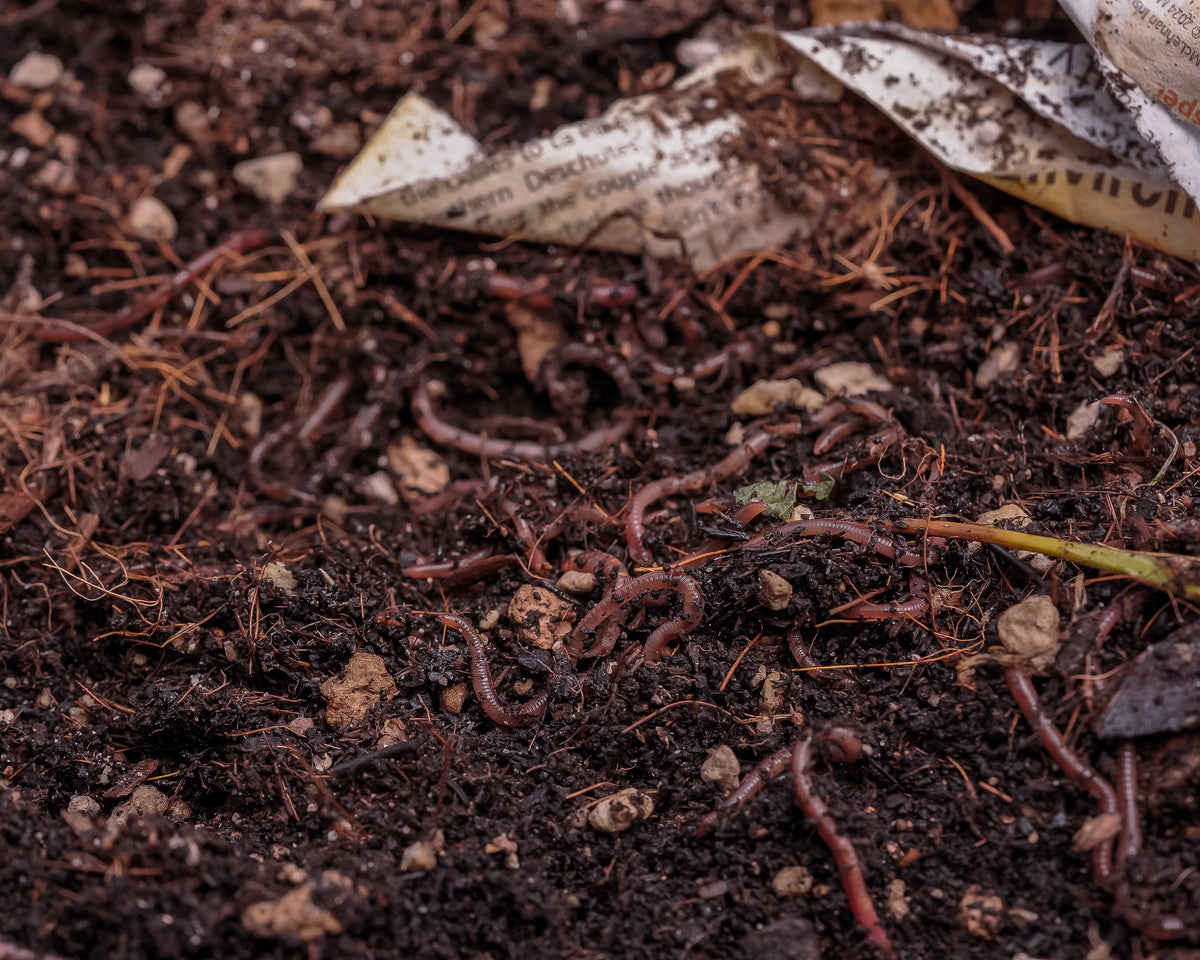
Robust Ecosystem
Our diverse ecosystem—from beneficial fungi, microbes, and insects like Rove beetles, Stratiolaelaps mites, lacewings, and ladybugs to snakes, lizards, and spiders—supports plant health and resilience. Plants such as clover, alyssum, poppies, and cosmos further enhance biodiversity, providing habitats and food sources. This holistic approach ensures sustainable cultivation and high-quality cannabis products.

 Pick-Up or Delivery?
Select Your Store:
Pick-Up or Delivery?
Select Your Store:



